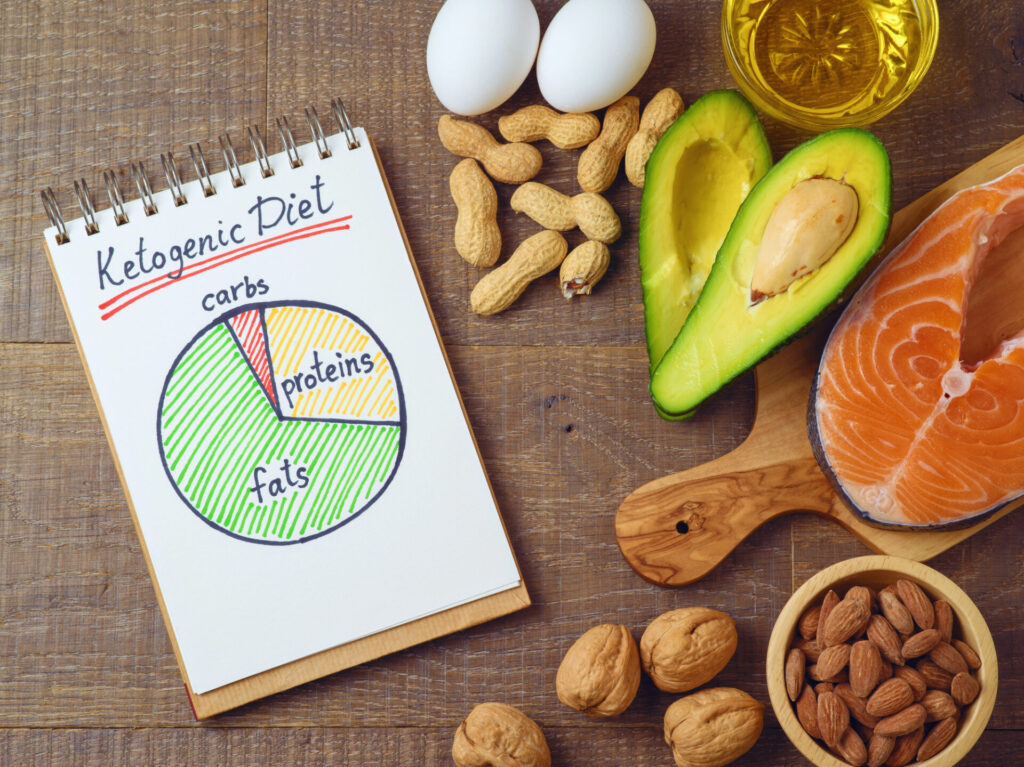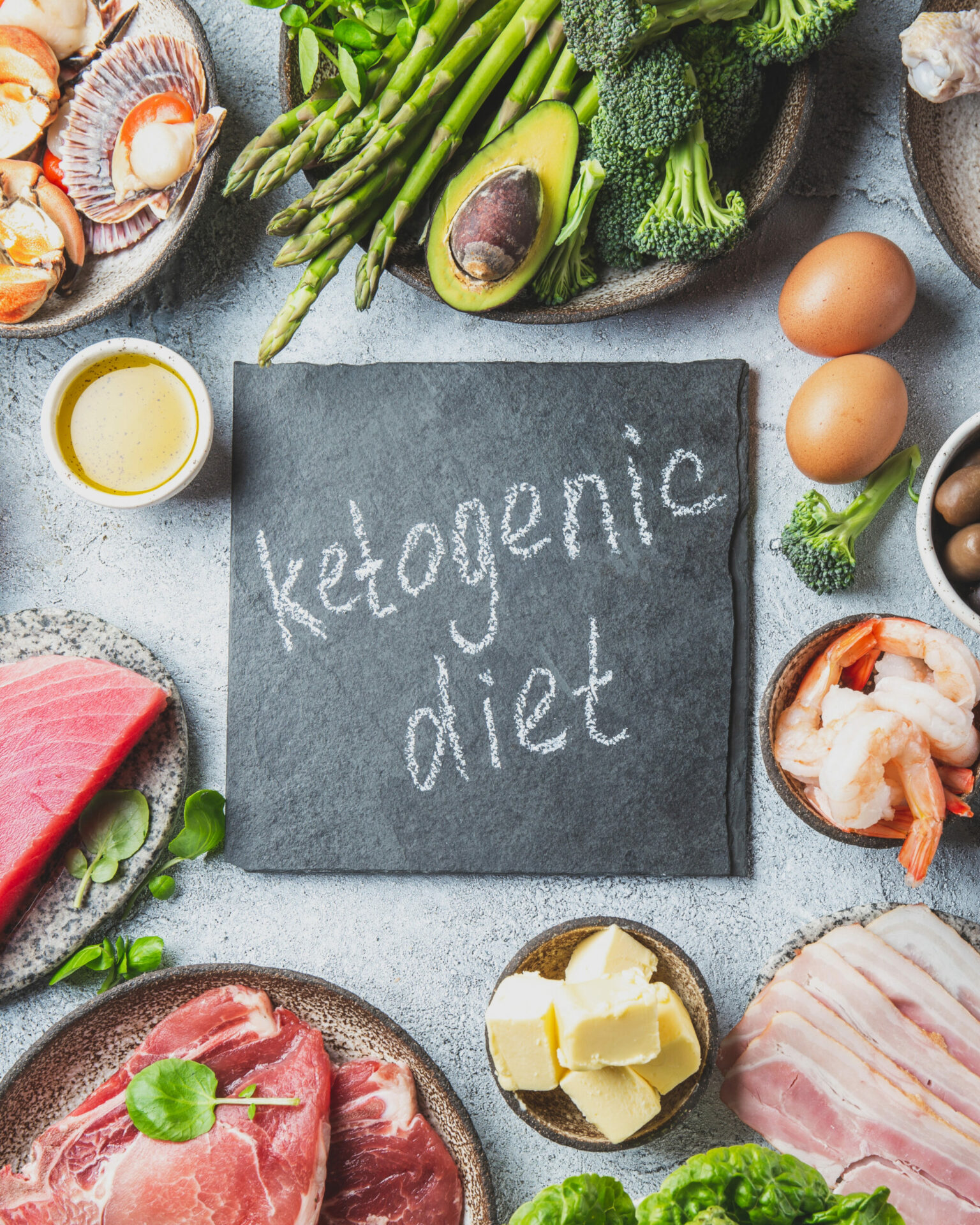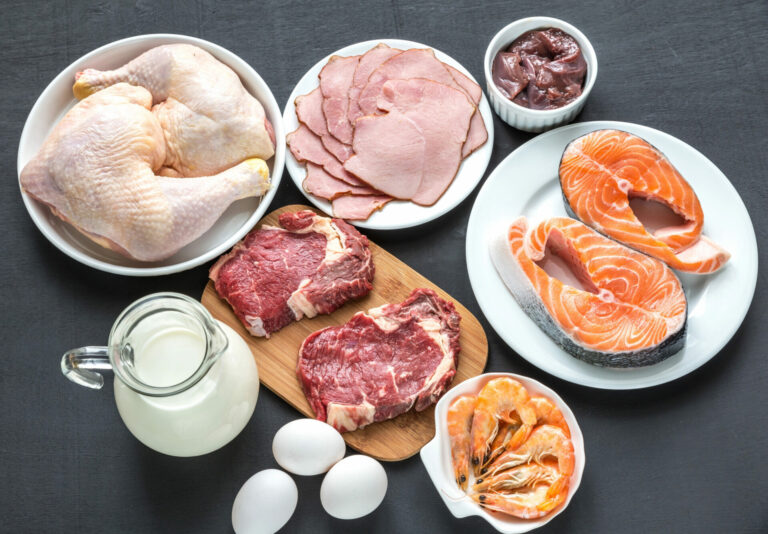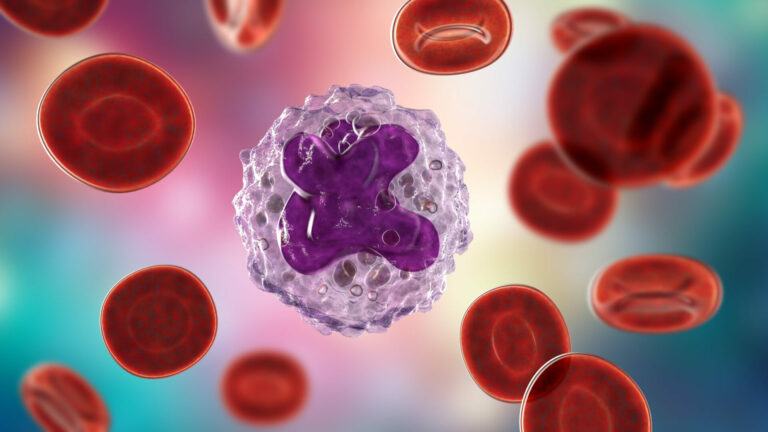The Ketogenic Diet – How It Works
Note: This post may contain affiliate links. We may earn a commission, at no additional cost to you, if you make an purchase via our links. See our affiliate disclaimer for more information.
The ketogenic diet, often referred to as “keto,” is a high-fat, low-carbohydrate eating plan that has gained popularity for its potential benefits in weight loss, energy stabilization, and even certain medical conditions.
The primary goal of the ketogenic diet is to shift the body’s metabolism into ketosis, where it burns fat for fuel instead of relying on carbohydrates. This metabolic shift can profoundly impact how the body functions, especially in terms of energy utilization and fat storage.

What Is Ketosis?
Ketosis is a natural metabolic state that occurs when the body lacks enough carbohydrates for energy. Under normal circumstances, the body converts carbohydrates into glucose, which is its main energy source.
However, when carbohydrate intake is drastically reduced, the liver begins breaking down fat into molecules called ketones, which then serve as an alternative fuel for the brain and body. This process forces the body to rely primarily on fat stores for energy, leading to increased fat burning and weight loss.
By following a ketogenic diet—typically composed of 70-80% fat, 10-20% protein, and only 5-10% carbohydrates—the body enters and maintains ketosis, continuously burning fat for energy. Variations of the keto diet include the Standard Ketogenic Diet, Cyclical Ketogenic Diet, Targeted Ketogenic Diet, and High-Protein Ketogenic Diet, all with varying degrees of intent.
This shift not only promotes fat loss but also stabilizes blood sugar levels and reduces insulin production, making the ketogenic diet particularly beneficial for people with insulin resistance or Type 2 diabetes.
Benefits of the Keto Diet
The ketogenic diet offers a range of potential benefits, particularly in areas such as weight loss, mental clarity, and the management of certain medical conditions.
These benefits largely stem from the metabolic state of ketosis, which changes the way the body processes energy and affects various bodily systems.
Weight Loss
One of the most well-known benefits of the ketogenic diet is its effectiveness for weight loss. When the body enters ketosis, it becomes highly efficient at burning stored fat for energy, leading to significant fat loss over time.
Additionally, because fats and proteins are more satiating than carbohydrates, many people on the keto diet experience reduced hunger and fewer cravings, which helps with calorie control.
Improved Mental Clarity and Focus
Another benefit of the ketogenic diet is improved mental clarity and focus. Ketones, the alternative energy source produced during ketosis, are a highly efficient fuel for the brain.
Unlike glucose, which can cause energy spikes and crashes, ketones provide a steady and reliable energy supply to brain cells, enhancing cognitive function. Many people on the keto diet report feeling more focused, alert, and mentally sharp as their brain is consistently fueled by ketones.
Management of Certain Medical Conditions
Finally, the ketogenic diet has shown promise in managing various medical conditions, particularly those related to metabolic health and neurological disorders. For individuals with Type 2 diabetes or insulin resistance, the keto diet helps lowerblood sugar levels and improves insulin sensitivity, allowing for better management of the condition.
Additionally, the ketogenic diet has been used therapeutically for decades to reduce the frequency and severity of seizures in people with epilepsy, particularly in children who don’t respond well to medications.
The keto diet’s ability to regulate blood sugar, reduce inflammation, and provide stable brain energy makes it a promising option for managing certain health conditions.
Foods to Eat and Avoid on a Ketogenic Diet
The ketogenic diet revolves around high-fat, moderate-protein, and very lowcarbohydrate foods to maintain the body in a state of ketosis.
Achieving the right balance of macronutrients is especially important for maximizing the diet’s benefits, including weight loss and improved metabolic health. Let’s discuss the foods that should be prioritized and those that should be avoided while following a ketogenic diet.

Foods to Eat
On a ketogenic diet, the focus is on high-fat, low-carb foods that provide energy without spiking blood sugar levels. Here are key food groups to include:
- Avocados and avocado oil
- Olive oil and olives
- Coconut oil and butter
- Ghee (clarified butter)
- Fatty fish like salmon, mackerel, and sardines
- Nuts and seeds (e.g., almonds, chia seeds, flaxseeds)
- Full-fat dairy like cheese, cream, and butter
- Meat (beef, pork, lamb, etc.)
- Poultry (chicken, turkey, etc.)
- Eggs
- Fish and seafood (salmon, tuna, shrimp, etc.)
- Full-fat dairy products like cheese and Greek yogurt
- Spinach, kale, and arugula
- Broccoli and cauliflower
- Zucchini
- Cabbage
- Bell peppers (in moderation)
- Asparagus
- Unsweetened tea (green or herbal)
- Black coffee
- Bone broth
- Sparkling water (plain or flavored, as long as it’s sugar-free)
Foods to Avoid
To maintain ketosis, it’s important to avoid foods that are high in carbohydrates, especially refined and processed options. These foods can quickly raise blood sugar and kick the body out of ketosis:
- Sweets (candy, cakes, pastries)
- Sugary beverages (sodas, fruit juices, sweetened teas)
- Ice cream and sugary desserts
- Honey, maple syrup, agave, and other natural sweeteners
- Bread, pasta, rice
- Oats, quinoa, couscous
- Cereals, crackers, and granola
- Corn and corn-based products
- Potatoes, sweet potatoes, and other starchy vegetables
- Bananas, apples, oranges, and grapes
- Pineapple, mangoes, and other tropical fruits
- Dried fruits (raisins, dates, figs)
- Lentils, chickpeas, and black beans
- Peas, kidney beans, and other varieties
- Processed snacks (chips, cookies, etc.)
- Pre-made sauces (ketchup, barbecue sauce, salad dressings with sugar)
- Packaged convenience meals
- Low-fat and “diet” products (which often contain added sugars)
Final Though
The ketogenic diet offers numerous benefits, including effective weight loss, improved mental clarity, and potential therapeutic effects for managing certain conditions like Type 2 diabetes and epilepsy.
One thing to be aware of is the initial phase of the ketogenic diet, which is often described as the “keto flu.” This temporary set of symptoms—such as fatigue, headaches, irritability, and dizziness—occurs as the body adapts to using fat and ketones for fuel instead of carbohydrates.
Understanding both the benefits and initial hurdles of the ketogenic diet can help individuals make informed decisions and successfully adopt this low-carb, high-fat lifestyle.





